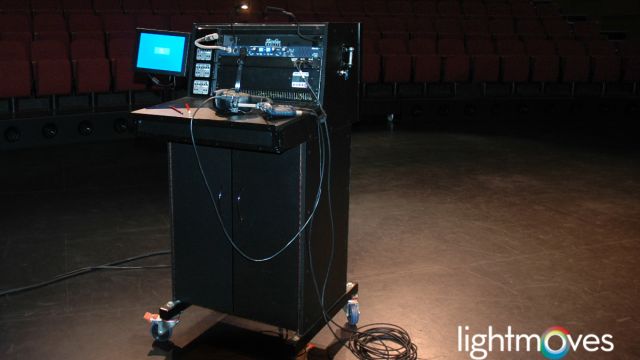Stage Management: The Glue that Holds a Production Together

By Marcus Pugh from Resolution X
Once the curtain opens, the most important person in that theatre isn’t out on stage, they’re not in the audience and they’re not even in the bio box or foyer. It’s the stage manager standing in the prompt side wings (that’s stage left for the uninitiated).
The work of a good stage manager should never be under-estimated because it doesn’t matter how good the director or actors are, or how great the costumes, set and lighting looks, if the stage manager isn’t calling the cues and keeping the inner mechanisms of the show running it just won’t work.
While there are the basics of stage management we all see, like calling the show and creating the ‘prompt book’, it is all the other stage management tasks that go unseen that can be the difference between a great show and one that doesn’t open.
It is these ‘unseen’ things that are also the difference between production suppliers, be it in sales or hire. Choosing a quality supplier can ensure that your show or venue runs smoothly. Don’t just go with the cheapest option because this will come back to bite you when those ‘unseen’ tasks haven’t been completed.
The good stage manager is early and late, they’re the first one to arrive each day and the last to leave at night because they need to know about every element of the show from artistic to technical. A stage manager will usually be attached to a production before the cast is even auditioned and will still be working on cleaning up accounts and paperwork days or even weeks after the last curtain call.
As with theatre and life in general, communication and control is key. A good stage manager will take control of a production from the first days in the audition or rehearsal room, while not stepping the on the ego of the director or producer. This control does not mean being loud and the centre of attention (that’s the actor’s job), a good stage manager will communicate the appropriate information when it is needed.
 Once a show hits the theatre, communication from the stage manager becomes even more important because they are accountable for the safety of all cast, crew, front of house staff, not to mention the room full of paying customers.
Once a show hits the theatre, communication from the stage manager becomes even more important because they are accountable for the safety of all cast, crew, front of house staff, not to mention the room full of paying customers.
For this reason a quality reliable talk-back (or intercom) system is the most useful resource to any stage manager in the theatre. A reliable talk-back system should consist of quality components and cabling to eliminate interference; the whole system is only as reliable as its weakest link.
While all good stage mangers are good listeners and effective communicators, they can be hamstrung by an unreliable talk-back system when things ‘heat up’ in the theatre.
For any stage manager to stay in control and communicate they must stay calm, no matter how chaotic things might get leading up to and during a show. A good stage manager stays calm because they know the show inside and out as well as having backup plans B, C, D etc. in place. This is where the ‘after-sale’ service of a quality supplier comes into play.
No matter what role you might be filling in your next show, know that whatever happens you can look to the stage manager, they will know what to do because they are the glue that holds the show together.
There are a range of talk-back systems available for sale and hire from Lightmoves and Resolution X. Lightmoves also designs and builds custom Stage Manager’s Consoles. Please contact them for information or a quotation - they know all the ‘unseen’ things that go towards a smooth running venue or production.
Contact Lightmoves for theatrical lighting sales: Ph (03) 9701 2500, theatre@lightmoves.com.au| www.lightmoves.com.au
Contact ResolutionX for theatrical lighting hire: Ph (03) 9701 2411), info@resolutionx.com.au| www.resolutionx.com.au
Originally published in the May / June 2013 edition of Stage Whispers.





